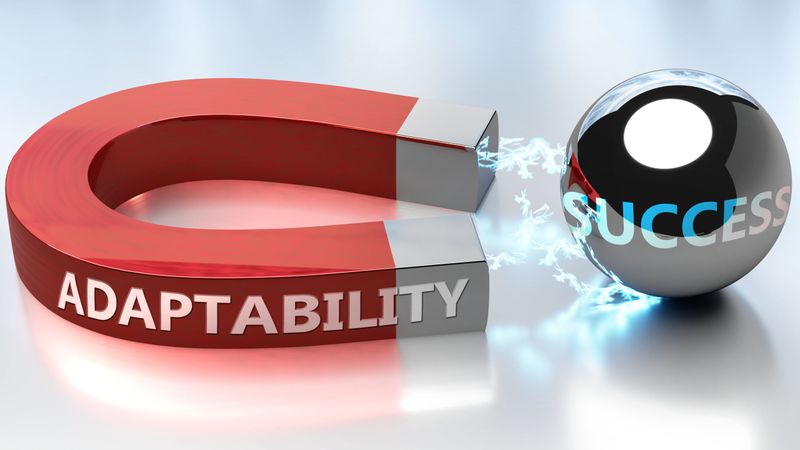In a rapidly evolving world, Gen Z is known for its tech-savvy nature and adaptability. However, there are certain life skills that this generation often overlooks, causing them to struggle in various aspects of life. From effective communication to financial literacy, these skills are crucial for personal and professional growth. Understanding and embracing these abilities can open doors, foster independence, and enhance overall well-being. While embracing technology, it’s equally important for Gen Z to develop a holistic skill set that balances digital prowess with essential real-world competencies. Here are 12 life skills that, if learned, could significantly empower Gen Z.
1. Effective Communication

Communication isn’t just about talking; it’s about listening and understanding others. Many Gen Z-ers are glued to their screens, which can hinder verbal interaction. Often, they struggle to express themselves clearly or misinterpret social cues. Developing effective communication skills involves active listening, empathy, and assertiveness. This isn’t just for personal life; it’s crucial in professional settings too. Imagine the difference it would make in job interviews or resolving conflicts. Mastering communication can lead to stronger relationships and open up opportunities that might otherwise be missed.
2. Financial Literacy

Understanding money is essential, yet many young adults shy away from it. Financial literacy is more than just knowing how to save; it involves budgeting, investing, and understanding credit. Without these skills, financial independence can seem daunting. Imagine being able to confidently manage expenses and plan for the future. Young people often miss out on opportunities to grow wealth simply because they don’t know where to start. Learning financial literacy early on can pave the way for a secure and prosperous future.
3. Time Management

With endless distractions, managing time effectively is a skill that many find challenging. Time management isn’t just about creating a schedule; it’s about prioritizing tasks and setting boundaries. For Gen Z, accustomed to multitasking, this skill can improve productivity and reduce stress. Consider the impact of meeting deadlines without last-minute rushes. This not only boosts personal efficiency but is also a key trait employers look for. Embracing time management can lead to a more balanced and fulfilling life.
4. Emotional Intelligence

Emotional intelligence (EI) is the ability to understand and manage your emotions and the emotions of others. It’s about self-awareness, self-regulation, and social skills. Many Gen Z-ers focus on academic and technical skills, overlooking EI. However, this can be a game-changer in both personal and professional arenas. Imagine handling conflicts with grace or supporting a friend in need. Developing EI can enhance relationships and lead to a more empathetic and harmonious life.
5. Problem-solving

Problem-solving is a critical skill that involves identifying issues and developing practical solutions. Many young people rely on quick fixes or external help, missing the opportunity for growth. Enhancing problem-solving abilities encourages creative thinking and resilience. Picture a complex project at work; those who can navigate challenges with innovative solutions stand out. Embracing this skill fosters confidence and adaptability, essential traits in today’s ever-changing world.
6. Adaptability

In a rapidly changing world, adaptability is key. Many Gen Z individuals find comfort in routines and resist change, which can hold them back. Adaptability involves being open to new ideas and adjusting to various situations. Think about the workplace, where roles and technologies evolve constantly. Being adaptable can lead to more opportunities and personal growth. It’s about embracing change and viewing challenges as opportunities rather than threats.
7. Critical Thinking

Critical thinking involves analyzing information objectively to make reasoned judgments. It’s a skill often overshadowed by the fast-paced, information-rich environment of today. For Gen Z, developing critical thinking means questioning assumptions and evaluating evidence. Imagine navigating complex decisions with clarity and confidence. This skill is invaluable in academic settings and beyond. Fostering critical thinking encourages curiosity and a deeper understanding of the world.
8. Networking

Networking is more than collecting contacts; it’s about building genuine relationships. Many young people underestimate its value, focusing on virtual connections rather than meaningful interactions. Effective networking opens doors to career opportunities and new learning experiences. Consider how a simple conversation at an event could lead to a dream job or collaboration. Building a strong network requires effort and sincerity, but the benefits can be profound and lasting.
9. Cooking Skills

Cooking is more than a survival skill; it’s a creative outlet and a pathway to healthy living. Many Gen Z-ers rely on fast food or pre-packaged meals, missing the benefits of home-cooked meals. Learning to cook fosters independence and can be a fun and rewarding experience. Imagine the satisfaction of preparing a delicious meal for friends or family. Cooking skills also enable better nutrition and a deeper appreciation for food.
10. Resilience

Resilience is the ability to bounce back from setbacks and continue moving forward. It’s a trait that many young people struggle with, often feeling overwhelmed by challenges. Building resilience involves developing coping mechanisms and a positive mindset. Picture overcoming a personal failure and emerging stronger and wiser. This skill is essential for navigating life’s ups and downs with grace and determination.
11. Self-care

Self-care is about nurturing your physical, mental, and emotional well-being. Many Gen Z individuals prioritize productivity over self-care, leading to burnout. This skill involves recognizing the need for rest and making time for activities that rejuvenate the body and mind. Imagine feeling refreshed and balanced, ready to tackle life’s demands. Prioritizing self-care leads to a healthier and happier life.
12. Conflict Resolution

Conflict resolution involves understanding and addressing disagreements constructively. Many young people shy away from confrontation, leading to unresolved issues. Developing this skill involves empathy, communication, and negotiation. Consider how addressing conflicts directly can strengthen relationships and foster mutual respect. It’s not about avoiding disagreements but handling them with understanding and cooperation. Mastering conflict resolution can lead to more harmonious interactions and personal growth.

Well, hello there!
My name is Jennifer. Besides being an orthodontist, I am a mother to 3 playful boys. In this motherhood journey, I can say I will never know everything. That’s why I always strive to read a lot, and that’s why I started writing about all the smithereens I came across so that you can have everything in one place! Enjoy and stay positive; you’ve got this!

